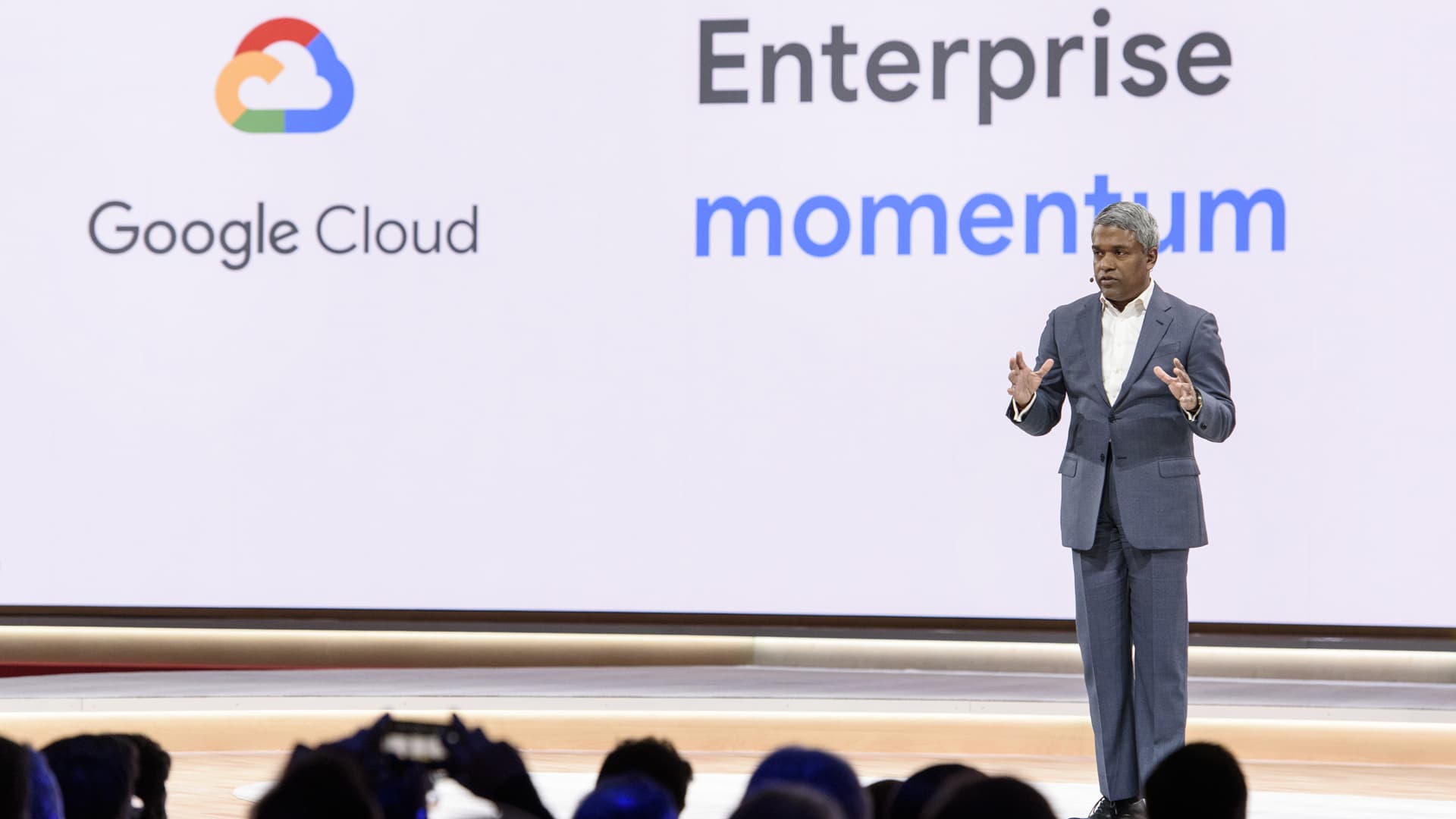
Google Cloud CEO Thomas Kurian speaks at the Google Cloud Next event in San Francisco, April 9, 2019.
Michael Short | Bloomberg | Getty Images
Highmark Health announced Monday that it’s integrating technology from Google Cloud and the health-care software company Epic Systems to try to improve data gathering for providers and payers.
Consumer health-care data is stored across different systems and formats in the U.S., and the fragmentation can make it difficult for payers and providers to access the precise information they need. It’s a growing opportunity for cloud providers like Google, Microsoft and Amazon Web Services.
Highmark, headquartered in Pittsburgh, is the parent company of a health plan with 7 million members, a provider network of 14 hospitals and several other entities.
Combining Epic’s Payer Platform, which sends patient data between payers and providers, with Google’s analytics and artificial intelligence capabilities will allow quicker access to useful data about a patient, such as their upcoming visits, medical history, insurance claims and health plan benefits, Highmark said.
This kind of information is often stored across multiple databases and formats, which means it can be difficult and tedious for doctors and insurance workers to track down, experts said.
A 2022 report from the American Medical Association said data fragmentation is a “perpetual failing of our current health care system,” and the organization called for the creation of new technologies and policies to help reduce it. The “substantial cognitive load” of organizing large volumes of data across complex software is causing physician burnout, according to an April 2023 study published in the Journal of Primary Care & Community Health.
Highmark said its new integration will automate administrative processes such as prior authorization, an insurance cost-control process that the AMA says is “manual and time consuming.”
Dr. Tony Farah, chief medical and clinical transformation officer at Highmark Health, said the integration will also help doctors make more informed choices about proper next steps, and eventually reduce the cost of care for patients.
“Doctors don’t need help once they have information; the problem is they don’t have it,” Farah told CNBC in an interview. “The idea is to provide this type of actionable information well ahead of time, any time of the day.”
Richard Clarke, chief analytics officer at Highmark Health, told CNBC that easier access to data about a patient will help clinicians ensure patients are receiving the care that’s best for them and avoid unnecessary steps such as extra visits or readmissions.
Highmark said its new integration will also help it aggregate clinical data from its hospitals that representatives from its health plan need to access. The technology can automatically notify the health plan about upcoming patient visits, for instance.
“It really eliminates the need to do that manually, where the health plan may have formally sent some requests to the provider or called them and created a bunch of manual steps,” Clarke said. “This can be done seamlessly now.”
Highmark said its provider system estimates that the shared claims data from the integration with Google Cloud will help it save around $2.7 million each year.
Amy Waldron, global director of healthcare strategy and solutions at Google Cloud, told CNBC that with Highmark’s integration “the consumer finally is going to be getting value from their health-care data.”
It’s too early to know whether Highmark’s integration will make a material difference for its providers, its health plan or the overall quality of its patient care. Employees won’t have to go through extra steps to access the new capabilities, Clarke said.
Highmark said it plans to roll out the technology to its provider network by the end of the second quarter and to at least two additional Epic-based providers within its insurance network by the end of 2024.







